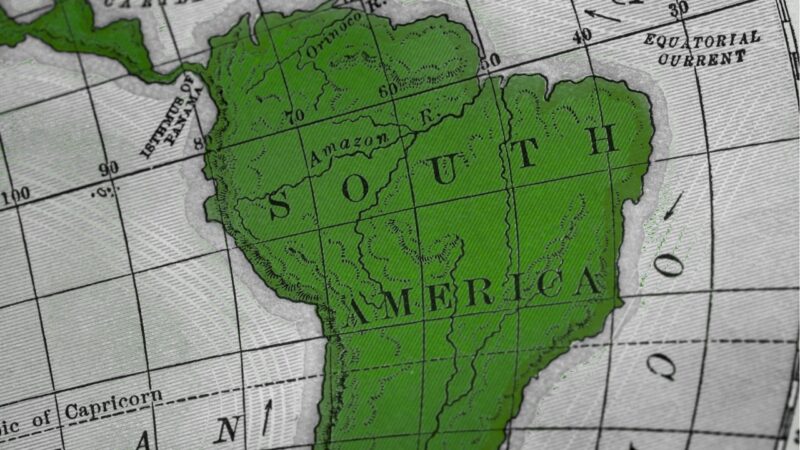Post-pandemic peace: Ukraine needs to seize a place for itself in the new reality
The world after the pandemic won’t be the same as before. There are three scenarios for the new reality. What Ukraine must do so it does not disappear.
One would probably say that in times like these—when we are expecting to be deluged by the tsunami of the coronavirus, and like as not there will be several waves—talking about “what comes after” seem far-fetched and somewhat alarmist. Most of us simply wish to return to some kind of “normal,” even if it wasn’t very much to our liking.
Nevertheless, I will go out on a limb and declare that for better or worse, after this pandemic the world will never be the same as before. This pandemic is much more than just a stress test. It will change our way of life, change relations between people and between countries, and change countries themselves and international institutions. And it will lead to a reset of the rules of the game in the world.
The pandemic is just starting to develop here in Ukraine, but several things have already become glaringly obvious to me.
First of all, the challenges and problems it presents affect literally everybody, regardless of their origin. On the other hand, we don’t have any effective mechanisms to influence the resolution of these problems. This comes especially to the fore during the pandemic, but it also applies to other issues such as climate change, refugees, and organized crime.
Global institutions and formats, along with their authorities and toolkits, are totally incapable of handling problems of this magnitude. The WHO has lately become a mere consultative body instead of being a worldwide “first response” provider. The G-20 is moribund, and the G-7 is very nearly so, as well. Both formal and informal global structures seem to be incapable of realistically contributing to the resolution of this problem. If the situation doesn’t change, it is bound to rapidly overwhelm us all.
Second, the pandemic has revealed a drastic absence of solidarity, sordid competition for medical equipment, and weak cooperation due to an elementary lack of coordination, even within the EU. This is alarming but in itself does not excuse debacles such as Serbian president Aleksandar Vucic appealing to China for aid and accusing the EU of failing to offer proper assistance or solidarity.
The dominant tendency of countries to focus on their own interests to the detriment of international cooperation has been unmistakable in recent years. This pandemic will either entirely kill off that solidarity or lead to a new qualitatively new form of international cooperation. Countries hit by the pandemic are following their own national strategies and are likely to draw serious conclusions based on the results. Whether the conclusions remain individual or consolidate into joint consensus will affect what the world looks like in the coming decades. The choice is obvious: either greater nationalism or new forms of globalization and cooperation, for staying with the status quo will be impossible.
Third, quality institutions are critical if serious challenges like a pandemic are to be overcome. It is undeniable that we must strengthen our institutions, both national and international ones—especially for Ukraine, where most of our institutions are deteriorating or near collapse and desperately need rebooting.
There are two options: either big government or handing over some of its functions to business and civil society. It is virtually certain that control functions and invasions of privacy will multiply severalfold, as will the analysis and monitoring of huge tracts of data. China has already approved multiple means of tracking, recognition, data analysis, social media monitoring, drone usage, and more.
I would venture to predict that in the future, if we wish to travel safely we will be forced to agree to the monitoring of our health data or even agree to live sensor readings of certain conditions throughout our voyage. Using our cell phones to track us will likely become routine (already it has been used to identify the contacts made by infected people). We will be watched by national governments as well as by international entities.
Are we ready to pay this price, and what exactly will it be? Incidentally, this will become significant also for combating crime, as the Hollywood scenarios of sci-fi thrillers rapidly come to life. Not to mention how it will affect illegal aliens, including the ones who are employed—all this will become much more complicated.
Fourth, populism is only attractive as long as it doesn’t cost much. But when we are talking about life and death, we should take the word of the pros and trust the data. We need to have trustworthy sources, particularly as topics like viruses, exponential growth, etc., are now top of mind for everybody and probably for a long time to come.
At the moment there are two basic models for defeating the pandemic—a harshly authoritarian one (e.g., in China) and a democratic one, which happens to vary significantly. South Korea, Japan, USA, Italy, Germany, and Britain have all adhered to rather different tactics in combating the pandemic. There is no guarantee that frightened people who have suffered through the disease won’t choose the new populism, but there is still a chance that they would instead choose politicians and professionals worthy of their trust. Such politicians must use this time to create new democratic procedures, responding not to today’s but to future realities and establishing fundamentally new mechanisms for international cooperation. We don’t need advisors, we need doers.
Fifth, we might (we should!) discuss the advisability of strict quarantine measures, although the choice is hardly in doubt. According to the latest presentation of the Imperial College in London (one of the most famous in the world), if such measures aren’t taken, the USA and Britain will see their numbers of patients who require intensive therapy exceeding today’s capacities by eight times.
As for Ukraine and our level of medicine, it is better not to say anything at all. We haven’t even made a habit of social distancing. But it’s very likely that once the pandemic is over, a noticeable segment of our new rules and customs will remain, including at a subconscious level. Access to shopping, parks, recreation facilities, etc., will no longer be unrestricted; it will be limited and structured. Social mores and even family customs will change, affecting inter-generational relationships.
At the moment, the main carriers of the virus are young people, while the main suffering is concentrated among older people. Will the generations continue to exist in a common time and space? If not, how will it affect social cohesion and the very existence of society as such? Everything from pooled pension plans to common morality is up in the air. And the same uncertainty applies to international entities. For example, the G-7 Summit this year will happen virtually, and I expect that will be the case with many UN events, which in any case are unjustifiably expensive.
Sixth, individual health will be important for the overall health of society. There will be more pressure to watch one’s health and comply with rules of hygiene, with frequent instances of extreme surveillance, persecution, and hating. One’s health will become a key criterion for public and especially political life. It remains to be seen what this will mean regarding tolerance, inclusivity, and attitudes to “others.”
Seventh, countries like Ukraine are, and will continue to be, the most vulnerable to future changes. Our institutions are not reliable or effective, our political class is still embryonic, and we lack a common concept or vision of Ukraine’s future as an open society, built on a common mentality, common identity, and common values system.
However, this does give us a unique opportunity for a wholesale reboot of our society and our country. To accomplish this, it is important to choose our partners and friends well. We must avoid those who appear simplistic and easy, demand less, and propose exclusive deals and secret pacts rather than partnerships and transparency.
Today, Ukraine is facing many challenges that have descended on us simultaneously: hybrid war waged by Russia, a near-collapsed domestic economy, the coronavirus pandemic, the global economic crisis, and an unprecedented polarization of our society exacerbated by weak social cohesion and government corruption. Our reality is not less dangerous than in 2014 but rather even more so.
After the pandemic, which we will undoubtedly vanquish, there are three basic options for the new world order: (1) а slide backwards into greater nationalism, dominated by short-term national interests; (2) а patchwork world with everyone governed only by their own strategy or lack thereof, where there is no stable security but rather constantly fluid and dynamic circumstances; or (3) a qualitatively new form of globalism which, contrary to the post-WWII architecture, will not be affected by the ability of individual players to block justice or the future.
We should—nay, we must!—work on the third option. Given the first two, Ukraine would very likely cease to exist. I want everyone to remember this.
Pavlo Klimkin, politician, diplomat, Minister of Foreign Affairs of Ukraine (2014–19)
Original source: https://www.liga.net/politics/opinion/postpandemichniy-mir-ukraina-doljna-vybit-sebe-mesto-v-novoy-realnosti
Authorized translation by Ksenia Maryniak, CIUS/ASAUS.

